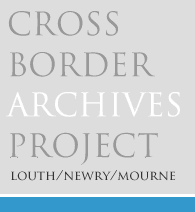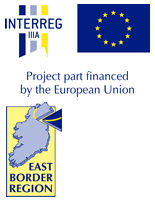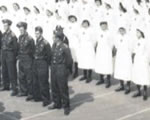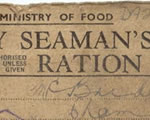World War II
The End of the War
After Allied invasion of Europe in the D-Day landings of June, 1944, the tide steadily turned. By spring 1945 the end appeared in sight. Germany surrendered in May 1945 and Japan in September 1945. May 8th was designated Victory in Europe (VE) Day and Victory Parades were arranged throughout the country to mark the end of the war in Europe. Victory in Japan (VJ) Day on 15th August ended the War.
For VE Day a Victory Parade was arranged for Newry with bands, bonfires and sports events at the Intermediate School. Thanksgiving Services took place and on 10th May, Newry Town Hall relayed Winston Churchill's radio broadcast and was the venue for a concert. Bunting was displayed for street parties and crowds gathered at Trevor Hill. In Warrenpoint, a "Victory Run" was arranged, while parades, dances and bonfires took place in Poyntzpass, Bessbrook and Kilkeel.
The Post-War years brought great change for both sides of the border. From 1947, the Education Act provided free compulsory education up to the age of 15, while the National Health Service, extended to Northern Ireland in 1948, provided free medical care to all. In 1952, the introduction of electric street lighting made Newry the first town in Ireland to be completely lit by electricity.
Eire also experienced profound change. The country underwent major economic difficulties. The war had starved many factories of fuel and raw materials. By 1945, large numbers had closed and many others were operating short-time work. The government's Wages Standstill Order had caused a great deal of hardship and inflation during war years and resulted in people being unable to afford the bare essentials. Gradually, wartime restrictions were lifted, although rationing continued through to the mid 1950s.
"Eventually the war ended and peace returned. After all the celebrations we found it wasn't much different from other years. There was still rationing and shortages but at least many of our 'mates' came home again. Some had changed a lot and many would never work again but gradually Newry returned to normal. The war years had good and bad memories, but let's hope we never have to live through them again."
« Previous page - Local Defences
- home |
- about project |
- online catalogue |
- online exhibitions |
- activities |
- oral history collection
- about us |
- contact us |
- legal |
- acknowledgements
© Cross Border Archives Project . Website design and development by morsolutions.
This project is part financed by the European Union through the Interreg IIIA Programme managed for the Special EU Programmes Body by the East Border Region Interreg IIIA Partnership.






